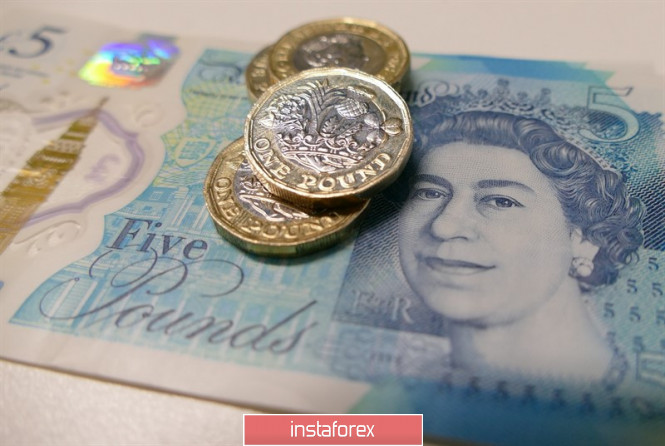
Although UK statistics continue to disappoint, the pound is in no hurry to throw a white flag. Apparently, like UK Prime Minister Boris Johnson, it sincerely believes in the victory of the Tories in the upcoming elections. If the British currency did not respond to strong data before, the question is, why should it now be hypersensitive to weak indicators, if the political landscape in the country has not changed much?
In July-September, the British economy expanded by 0.3% in quarterly terms, not reaching the forecast of 0.4%. On an annualized basis, the indicator increased by 1%, demonstrating the lowest growth rate since 2010.
In the third quarter, the number of working Britons fell by 58 thousand, to 32.753 million, which was the highest decline since the summer of 2015. The number of vacancies has declined in annual terms at the highest rate since the financial crisis.
In October, consumer prices in the country increased by 1.5% in annual terms, noting the worst dynamics since November 2016.
Last month, retail sales decreased by 0.1% compared to September. The annual rate increased by 3.1% against the forecast of 3.7%. Data turned out to be worse than market expectations.
Obviously, the protracted Brexit process is having a negative effect on the British economy. Therefore, it is not surprising that at the last meeting of the Bank of England, two out of nine members of the Monetary Policy Committee spoke in favor of lowering the interest rate.
However, it is unlikely that the BoE will weaken the monetary policy in December. Most likely, the central bank will prefer to evaluate the results of early elections to the national Parliament and only after that will begin to act. Therefore, forecasts for the pound are still based on the political factor.
According to a consensus estimate by Bloomberg analysts, if the Conservatives confidently win the upcoming elections, the GBP/USD pair will rise to 1.34. The probability of such an outcome is estimated at 40%. At the same time, the chances of unconditional victorious Laborites, according to experts, are still extremely low (5%), but if it does happen, then amid investors fleeing from the country, concerned about the nationalization policy, the pound could fall to $1.23.
According to recent polls, Conservatives are ready to support 42% of voters, while Labour - 28%.
The dovish rhetoric of the Bank of England allowed the bears on GBP/USD to carry out a counterattack. However, the bullish trend is still in force. Therefore, the statement by Nigel Faraj that the Brexit Party headed by him will not compete with the Tories in the upcoming elections, threw the pound to $1.2900.
"Brexit's very low risks without a deal should help the pound keep its recent profit against the US dollar and trade in the $1.2600-1.3200 range by the end of this year," UBS strategists said.
The material has been provided by InstaForex Company - www.instaforex.com